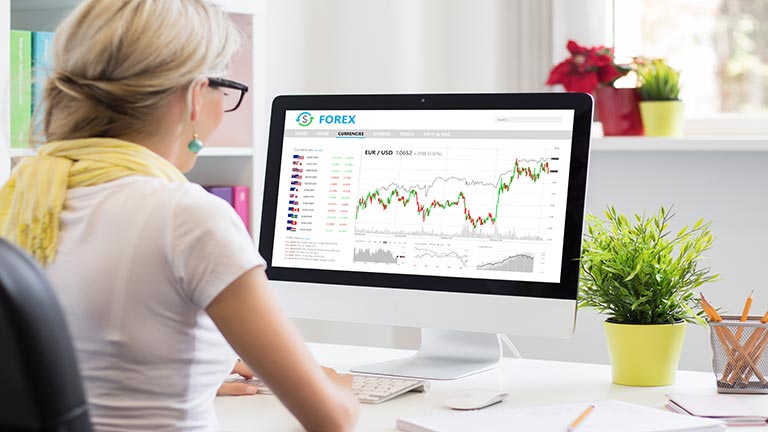Do I Invest Nationally or Internationally

By Dale Gillham
When considering investment opportunities, one of the fundamental questions that often arises is whether to invest nationally or internationally because your decision can significantly impact your investment portfolio and long-term goals. As individuals based in Australia, it's essential to assess the various factors that come into play when making this choice.

In this guide, we explore some critical considerations that can help you determine where to allocate your investment capital and whether it’s better to stick to Australian investments or to venture into international markets.
Understanding investment diversification
In its true sense, diversification means diversifying into other asset classes unrelated to the asset class in which you are investing to reduce the risk of your investment portfolio and increase returns. However, many experts claim you should invest in international equities in addition to Australian equities as a way to lower risk.
Their justification for diversifying into international investments is that the Australian market represents only 2.2 per cent of the global markets; therefore, according to the experts, most investment opportunities are available offshore.
But have you ever considered that by diversifying into international investments, you are actually sacrificing the potential investment returns you could make from Australian investments? Let me explain.
Australian investments vs international investments
According to the Credit Suisse Global Investment Returns 2023 Yearbook, the Australian stock market has been the best performer since 1900, producing an annualised real return of 6.43 per cent. You read that right – for 123 years, the Australian stock market has been the best performer in the world.
If we look at more recent times, research from Morningstar shows that Australian shares have been the best consistent performers compared to international equities over the last 20 years to 30 June 2023.
| Annual asset class returns 2004-2023 | Average |
|---|---|
| Australian equity | 9.00% |
| International equity | 8.40% |
| Australian small caps | 6.30% |
| Australian listed property | 5.30% |
| International fixed interest (hedged) | 4.90% |
| Australian fixed interest | 4.20% |
| Cash | 3.40% |
Market risk and exchange rate risk
Aside from the performance of Australian shares, why is it better to invest locally?
It’s important to understand when you invest in international markets, you have to contend with market risks, such as the economic influences of inflation and interest rates that affect the market as a whole. You also have to deal with fluctuations in exchange rates, which can potentially worsen returns, particularly if the dollar is appreciating against the other currency.
Given this, why would anyone consider diversifying their investment portfolio to take on more market risk, let alone the additional costs associated with investing in international equities, only to sacrifice returns? It just doesn’t make sense.
In fact, investors are beginning to question the conventional wisdom of over-diversification, preferring to invest in concentrated portfolios, which is my specialty.
Investing in shares on the ASX
For over 30 years, I have been sharing techniques and strategies that allow traders and investors to achieve maximum diversification and minimum risk while increasing their investment returns by investing in a concentrated portfolio of between 5 and 12 ASX shares (if you are an active trader, you want to have closer to 5).
Think about it: you don’t get twice the benefit from holding 20 stocks as you do from holding 10, and you certainly don’t get ten times the benefit from holding 100 rather than 10. Given this, it seems unrealistic to justify why anyone would put in the additional time, effort and analysis to find other stocks when the diversification benefit is so small.
Maximising investment returns
The idea is not to have lots of stocks with small amounts invested in each; instead, you only require a small number of the right stocks with larger amounts invested in each. This lessens your risk and increases your returns because:
- Smaller portfolios are easier to manage and represent lower risk. The more stocks you have in your portfolio, the more work you must do to manage your risk level.
- It is far easier to select a smaller number of stocks that are rising in price. The result is increased returns.
- You will have fewer transaction costs when buying and selling stocks simply because a smaller portfolio will have fewer transactions.
Making consistently wise choices about your investments can compound your returns and accelerate the growth of your portfolio, which is why I encourage you to review my guide to share trading.
Where to from here
I share many of these strategies and a whole lot more in my beginner course (the Trading Mentor Course) and my intermediate course (the Short Course in Share Trading). If you are serious about your long-term success in the stock market, I encourage you to take the time to discover why investing in a concentrated portfolio of Australian shares will deliver stronger returns.
Dale Gillham is one of Australia's most respected analysts with over 30 years of experience in the investment industry, including banking, financial planning, share market education and professional trading. He is the best-selling author of multiple books, and is passionate about ensuring clients receive the highest level of education via our stock market trading course (same quality and standards as the previously accredited Diploma of Share Trading and Investment).






